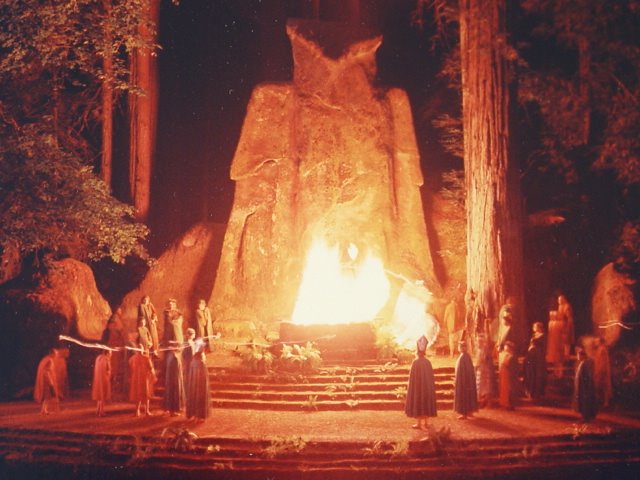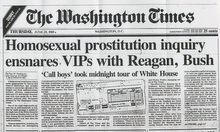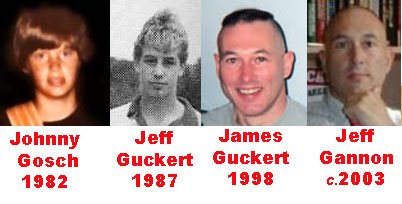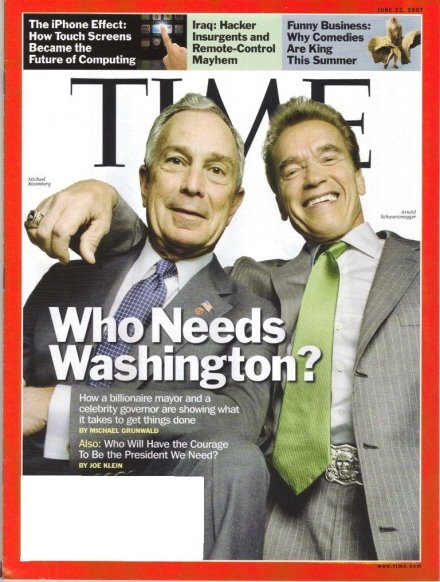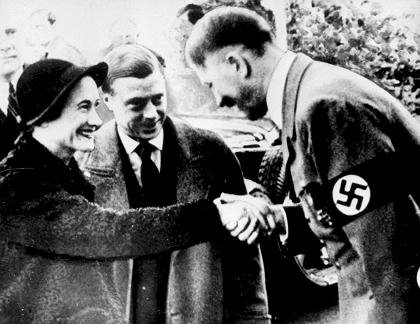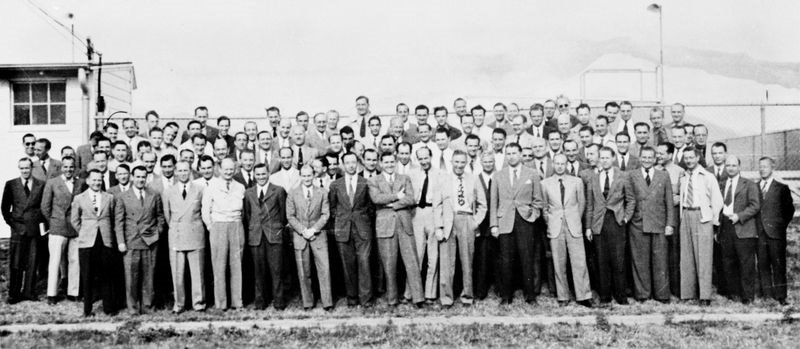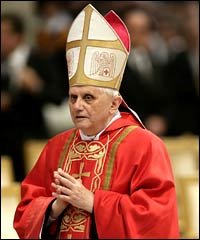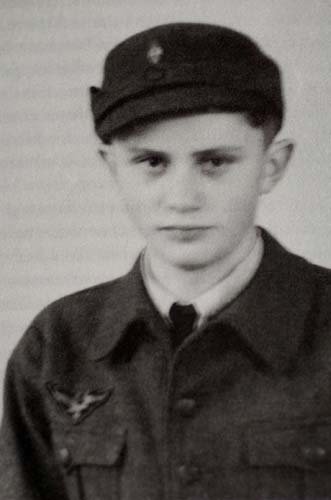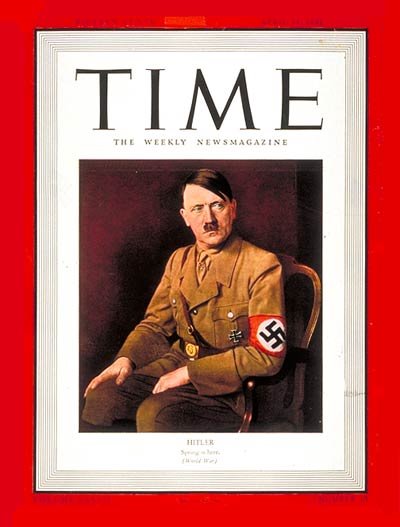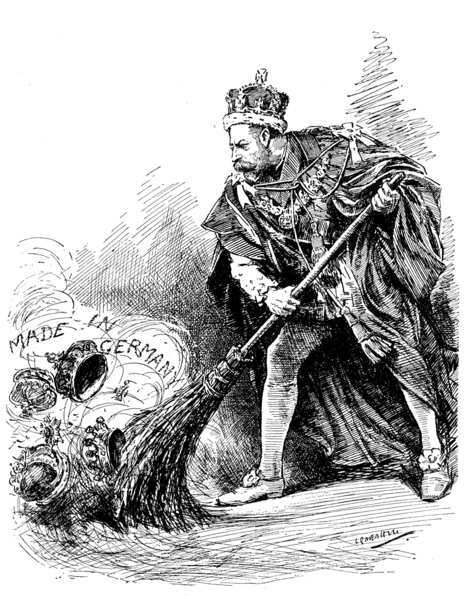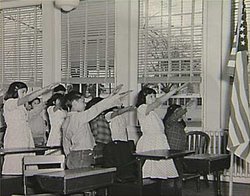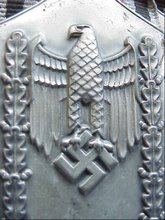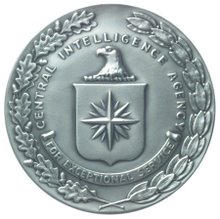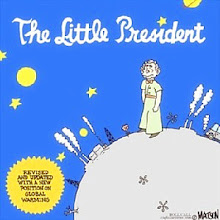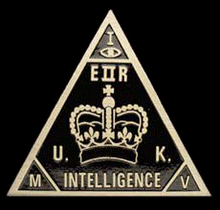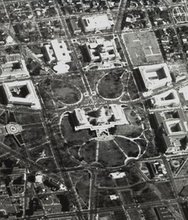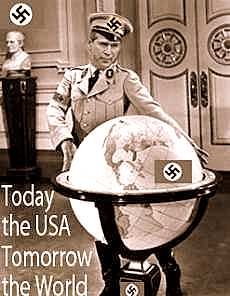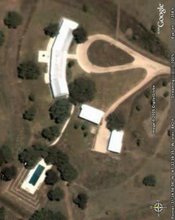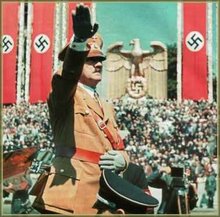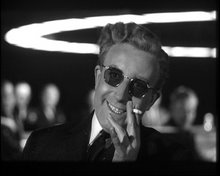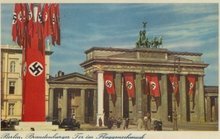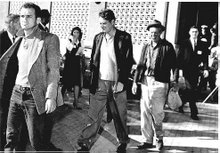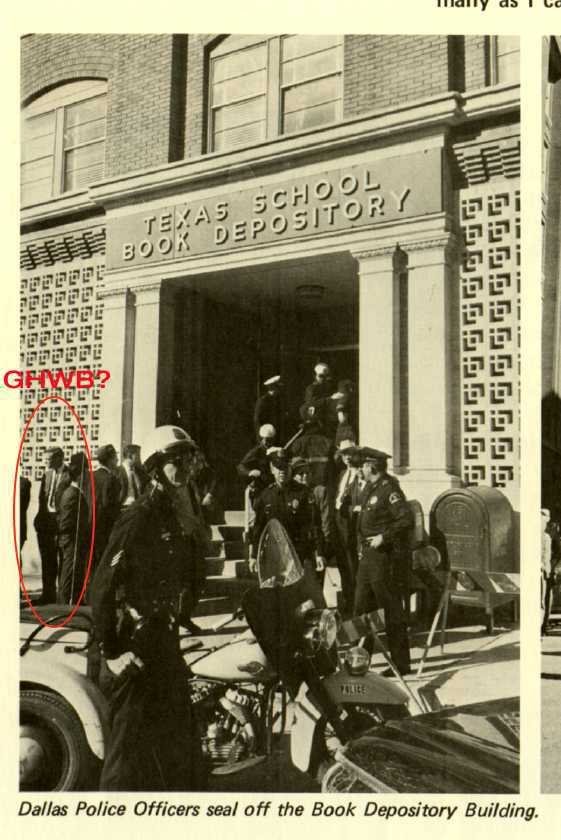
VIENNA, Austria (AP) — It's just a tiny typewritten line tucked away in an immense archive, but it sheds further light on the Nazi past of Arnold Schwarzenegger's father.
The brief entry in one of millions of documents stored at the Austrian State Archives shows that Gustav Schwarzenegger, the late father of the film star now running for governor of California, was a volunteer member of the Sturmabteilung, or SA — the notorious Nazi storm troopers also known as brownshirts.
The father's Nazi Party membership and combat record in the German army are not new, and his son's dismay about it is well known. The revelations of SA membership that emerged a week ago add another strand to the murky story.
The "SA 1.5.1939" listing shows that the elder Schwarzenegger joined May 1, 1939, the year after Germany annexed Austria and six months after the brownshirts played a crucial role in the bloody Kristallnacht riots.
The Simon Wiesenthal Center, which in 1990 investigated Gustav Schwarzenegger's wartime past at his son's request, plans to conduct new research before the Oct. 7 California recall election to establish what the father's unit did, said Rabbi Marvin Hier.
Whatever it finds out, "We will give it to Arnold, then to the public," Hier told The Associated Press in a telephone interview from the center's Los Angeles headquarters. "Whatever the record shows, so may it show. Should that record have any bearing on Arnold Schwarzenegger himself? In my opinion, absolutely not."
The Wiesenthal Center didn't find the storm trooper reference in its 1990 investigation because that record was sealed until last year, 30 years after Gustav Schwarzenegger's death in 1972.
The new information was "negative," though SA membership is not considered a crime in itself, as membership in the Gestapo or the paramilitary SS would be, Hier said.
"We know what the SA and the Nazi Party stood for," he said. "Arnold knows this, and he's not proud of the fact that his father was a member of the Nazi Party and that his father was a member of the SA. This is a matter of deep embarrassment, but Arnold cannot be judged by his father."
Schwarzenegger campaign spokesman Sean Walsh said Sunday the actor continues to fight for equality and humanitarian ideals.
"His record regarding stamping out intolerance is absolutely rock-solid and he will continue to work closely with the Simon Wiesenthal Center to ensure that the attitudes and actions that occurred in the Nazi era never happen again," Walsh said.
Walsh doesn't believe the actions of Schwarzenegger's father will influence voters in the Oct. 7 recall election.
Arnold Schwarzenegger has donated nearly $750,000 to the center, raised millions more, and helped the organization fight anti-Semitism. Born two years after World War II ended, he long ago distanced himself from his late father's views and in 1991 he received the Wiesenthal Center's National Leadership Award.
Schwarzenegger successfully sued a British tabloid in 1989 and a journalist in 1993 for suggesting he held Nazi and anti-Semitic opinions. He won undisclosed libel damages.
The storm troopers, a paramilitary organization tied to the Nazi Party, played a crucial role in expanding Adolf Hitler's power.
They were part of the 1938 Kristallnacht rampage, during which more than 1,000 synagogues were destroyed. In its aftermath, about 30,000 Jewish men were dragged to Nazi concentration camps and several hundred people were killed or committed suicide.
Gustav Schwarzenegger became a member the following year, at a time when SA membership was declining. The troops had 900,000 members in 1940, down from 4.2 million in 1934, according to the "Encyclopedia of the Holocaust," published in Germany and Switzerland.
Austrian State Archives don't have details about the elder Schwarzenegger's SA activities, and don't provide enough information to determine whether he was any worse than most Nazis, said Ursula Schwarz, a researcher at the Documentation Archive of the Austrian Resistance.
"You cannot judge that from these documents. You would need a whole lot more," she said.
There's no doubt that Schwarzenegger's father was a convinced Nazi; Austrian records indicate he joined the party on March 1, 1938, two weeks before the country was annexed. A separate record obtained by the Wiesenthal Center indicates he sought membership before the annexation but was only accepted in 1941.
But his past raises few eyebrows in Austria, where many have relatives who were Nazis.
Austrian newspapers, in stories proudly describing their native son's successes in a U.S. state much larger than his home country, mention Gustav Schwarzenegger's Nazi ties only in passing, if at all.
The Vienna daily Der Standard, in a recent story headlined "Arnie steps in: A man makes himself a legend," wrote that "Gustav, a high-ranking Nazi, brought up the bespectacled, rather frail boy with an iron fist and quite a few slaps in the face."
The archive records also include the elder Schwarzenegger's tattered ID booklet, with a photo of him sporting slicked back hair and a Hitler-style mustache. It lists injuries, hospital stays and medals. Another document says he saw action in Poland, France, Lithuania and in Russia, where he was wounded.
A health registry document describes him as a "calm and reliable person, not particularly outstanding" and assesses his intellect as "average."
Austrian authorities in 1947 determined that the elder Schwarzenegger could work as a police officer despite his Nazi past because there was no evidence he had committed war crimes.

 The singer, originally from Birmingham, made his name in heavy metal band Black Sabbath and earned a reputation as one of the wildest rock stars.
He has battled drink and drug addictions, been notorious for trashing cars and hotel rooms, bitten the head off a live dove in a meeting with record executives and spent time in jail after urinating on The Alamo.
He still releases solo albums and heads the popular annual Ozzfest rock festival.
The singer, originally from Birmingham, made his name in heavy metal band Black Sabbath and earned a reputation as one of the wildest rock stars.
He has battled drink and drug addictions, been notorious for trashing cars and hotel rooms, bitten the head off a live dove in a meeting with record executives and spent time in jail after urinating on The Alamo.
He still releases solo albums and heads the popular annual Ozzfest rock festival.
 Viewers will also see scenes such as the family moving home, and packing boxes with one marked "linens" and another marked "dead things".
Viewers will also see scenes such as the family moving home, and packing boxes with one marked "linens" and another marked "dead things".  The singer, originally from Birmingham, made his name in heavy metal band Black Sabbath and earned a reputation as one of the wildest rock stars.
He has battled drink and drug addictions, been notorious for trashing cars and hotel rooms, bitten the head off a live dove in a meeting with record executives and spent time in jail after urinating on The Alamo.
He still releases solo albums and heads the popular annual Ozzfest rock festival.
The singer, originally from Birmingham, made his name in heavy metal band Black Sabbath and earned a reputation as one of the wildest rock stars.
He has battled drink and drug addictions, been notorious for trashing cars and hotel rooms, bitten the head off a live dove in a meeting with record executives and spent time in jail after urinating on The Alamo.
He still releases solo albums and heads the popular annual Ozzfest rock festival.
 Viewers will also see scenes such as the family moving home, and packing boxes with one marked "linens" and another marked "dead things".
Viewers will also see scenes such as the family moving home, and packing boxes with one marked "linens" and another marked "dead things". 